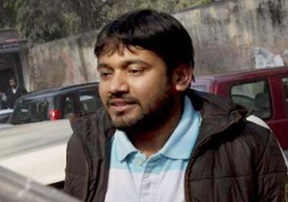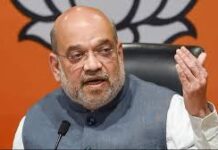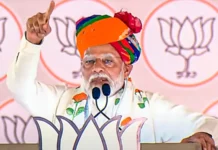 NEW DELHI: The Supreme Court today transferred the bail plea of JNUSU President Kanhaiya Kumar to the Delhi High Court and asked it to expeditiously deal with the matter, while declining to entertain the petition saying its direct intervention will be a dangerous proposition.
NEW DELHI: The Supreme Court today transferred the bail plea of JNUSU President Kanhaiya Kumar to the Delhi High Court and asked it to expeditiously deal with the matter, while declining to entertain the petition saying its direct intervention will be a dangerous proposition.
“You are leading a dangerous proposition. If this court will entertain it, it will become a precedent which will be available to all the accused in the country. Wherever there will be sensitive cases involving political persons or prominent persons or others…you know the atmosphere in the court.
“So in every case if it is said that Supreme Court is the only court, it would be a dangerous precedent,” a bench comprising justices J Chelameswar and A M Sapre said.
Further, it said, “Remember, this is not the only case of this type.”
While transferring the bail plea of Kanhaiya, who has been charged with sedition, the bench took an assurance from Solicitor General Ranjit Kumar that in the “prevailing extraordinary situation” pertaining to this matter, the Government of India and the Delhi Police Commissioner would provide adequate safety and security to the accused and a stream of lawyers who will be appearing in the High Court.
The bench also said that the counsel for all the parties would be given preference while entering into the court room at the High Court and the Registrar General would be responsible for limiting number of people to be allowed to enter inside.
The bench which asked the High Court to expeditiously deal with the matter did not give any specific date for listing it.
The Supreme Court permitted the counsel for Kanhaiya to amend his petition, which is to be filed shortly in the Delhi High Court. The apex court was not in agreement with the arguments advanced by a battery of senior advocates including Soli Sorabjee, Raju Ramachandran and Rajeev Dhawan that extraordinary law and order situation, threat to life of the accused and his counsel, hostile environment at the lower court and the simmering situation compelled them to rush directly to it.
The advocates also submitted that they moved the apex court for bail as already a writ petition concerning the arrest of the JNUSU President was pending before it.
However, their submission was objected to by the lawyers for Centre and Delhi Police, including SG Ranjit Kumar, ASG Tushar Mehta and senior advocate Ajit K Sinha, who said the facts of the writ petition and bail plea are different and even opposed it being heard directly by the high court.
The bench was also of the view, “What is under scrutiny is something different and the writ petition is to be heard on Monday. It is totally different from the bail application.”
When the argument was made by Kanhaiya’s counsel about the law and security situation, the bench said, “We do agree with you that it is an exceptionally extraordinary circumstance.”
The counsel said that they preferred the apex court to hear his bail plea as the situation in the High Court also would not be much different, to which the bench asked, “Is it so in the high court? Are we to understand that the HC is also agitated?”
While concluding the one-and-a-half-hour hearing, the bench said, “We permit them to make and amend the bail application today itself.” At the outset when Kanhaiya’s bail plea was taken up, the bench asked his counsel, “Did you move the bail petition before the trial court?”
When they replied in the negative, the bench asked the counsel, “Why are you rushing here?”
Ramachandran responded that the incident of February 17 does not require recounting, that is why they are before the apex court.
He said in the prevailing atmosphere, moving the sessions court for bail in the Patiala House Court complex was not possible and because of the general atmosphere, other lawyers were agitated yesterday.
“For me to go to any sessions court in Delhi is impractical, unsafe, dangerous to me as accused, dangerous to me as a lawyer who performs professional duty in a calm and peaceful environment,” he said.
Noting his submission, the bench wanted to know from him that why he did not then approach the Delhi High Court.
The senior advocate said it was a statutory right to apply for bail and looking at the experience of the past few days, “there was a feeling that there was denial of access to justice to my client”.
He said he is also answering why he approached this court for the bail and continued with his submission that this court is seized of the matter concerning access to justice for Kanhaiya Kumar and he was seeking apex court indulgence.
However, the bench interrupted him and said it was fully aware of the situation prevailing in the Patiala House Court complex and will examine the reports placed before it by the apex court-appointed commissioners, Registrar General of the Delhi HC and the Delhi Police.
“There were some commotions in the Patiala House Court. We know there is a difficult situation there. However, what is the difficulty and what prevents you from going to High Court,” the bench asked.
Replying to this question, Ramachandran said that the facts relating to Kumar’s arrest and subsequent events are still under the scrutiny of the apex court which is going to hear it on Monday.
However, the bench differed with him saying the matter listed for Monday and the bail pleas are not similar.
The senior advocate agreed that the bail plea was not put on merit but only because of particular situation in and around the Patiala House Court complex. The senior advocate, appearing for Kumar, said they have approached this court because of the prevailing hostile environment and apprehensions that they may not get justice as the accused and his lawyers are not safe and there is also a “simmering local situation”.
When the bench asked about the problem in approaching the high court, Ramachandran said the high court is in the “same city and the same hexagon” so they are moving the Supreme Court which has better security arrangements.
Further, he contended that the prayer was not without precedent as there was an extraordinary situation prevailing.
Since the accused was lodged in judicial custody the logical conclusion was that he was not required for custodial interrogation. Hence, the petition was directly filed in the apex court for bail, he submitted.
“I am here because this court deals with totality of the matter,” he said.
At this point, the bench came out with the stern observation that taking his bail plea directly would lead to “a dangerous proposition” and set a “dangerous precedent”.
Ramachandran said, “In this particularly charged situation, the Bar is agitated and there is a need for the apex court to hear the bail plea.”
Joining him, Dhawan argued, “The apex court is the safest court in the country and in view of the prevailing situation, the matter should be heard by it.”
He said the question is whether the Delhi Police can guarantee safety and security of the counsel in the situation “which has turned vicious”.
He said the court has only to see whether the apprehension expressed by the team of lawyers was genuine or not.
Ramachandran said that approaching the High Court would mean another round of “elaborate bandobast” and hearing the matter by the apex court, “will not open the flood gate”.
“I request you to entertain this extraordinary petition under extraordinary circumstances,” Dhawan said.
However, the submission was opposed by the Solicitor General who said there is no reason why there won’t be security in the high court.
He said the opposite side was representing the accused and will be representing a set of accused in future too and their apprehensions have to be taken with a pinch of salt.
The SG also raised objection to the “averment” made in the bail petition and said there is not even one word on the merit of the case.
He said there is a “serious charge” against the accused and the investigation is going on. The Solicitor General said that the accused is not needed during the arguments on bail as his lawyers will be arguing the case and he will be totally safe and secure.
“They (accused) have appropriate alternative remedy and the matter should be considered according to that remedy,” the SG submitted.
He also said that the situation of commotion is not an isolated incident as film actors, politicians and prominent persons also appear in courts.
“Such commotions do take place and the matters are heard and the courts do function,” he said, adding that the issue of bail comes under the jurisdiction of High Court.
The SG said that a wrong message would go that the high court is incapable of looking into the matter and said the security situation has been improved and tightened since the blast incident at the high court in 2011.
During the hearing, the bench said it would transfer the matter to HC only after getting an assurance from the Centre and the Delhi Police that apprehensions expressed would be taken care of as certainly it was not a normal situation in Patiala House courts.
“If you can assure us that proceedings can happen in peaceful manner, we will consider sending the bail matter in the high court,” the bench said.
The SG responded that the police is duty-bound to provide safety and security to all and “every arrangement required to be made will be done”.
At the fag end of the hearing, Sorabjee, also appearing for Kumar, said the apprehensions expressed were genuine for hearing the matter in the apex court.
He said it was not an imaginary apprehension and that errant lawyers have been garlanded and they have no repentance or any remorse for their action.
However, the bench said that even if the matter is heard in the apex court, nothing prevents them from coming here also.
“Can we prevent them from coming here?” Justice Chelameswar said, adding, “I personally believe that security is a concern.”
“We do agree with you that it is an exceptionally extraordinary circumstance,” the bench said while keeping on hold the several reports placed before it in a sealed cover.
“We simply transfer the bail petition to the high court. We permit them to move the bail today itself in the high court,” the bench said and dictated the order to this effect asking the High Court to expeditiously deal with the matter.
Kanhaiya Kumar had yesterday directly moved the apex court seeking bail while claiming threat to his life in Tihar Jail.
In the petition, filed through advocate Anindita Pujari, Kumar, who was also attacked in Patiala House court complex by a group of lawyers, claimed his innocence.
Kanhaiya Kumar was arrested on February 12 on sedition charge following a controversial event at JNU campus where anti-India slogans were allegedly raised.
The student leader was produced in the court on Wednesday after the end of his police custody, where a group of men dressed in lawyers’ robes unleashed a brazen attack on him and others, which included journalists, who were present there.
Kanhaiya had sought the apex court’s intervention, saying no purpose would be served by keeping him in the jail and the police was finding it difficult to even produce him in the court.–PTI






